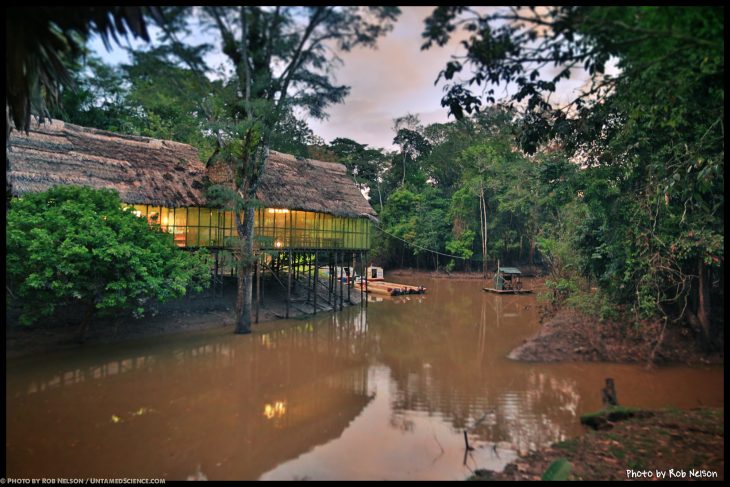Why care about the Amazon?
This Earth Day video on the Amazon offers a great opportunity to introduce you to *drumroll* environmental ethics. Let me take you to the other side…
Environmental Ethics
Environmental ethics is a discipline in philosophy. Philosophy now doesn’t that sound posh! In 1962, Rachel Carson published her epic book Silent Spring on the negative effects of pesticides on the environment. This book was part of a growing environmental awareness movement which led to the birth of the environmental movement in the 1970s. The discipline studies the relationship between humans and the environment and the moral questions that arise with it.
As you might have noticed, there are different ways for people to view and value nature. Culture, religion, education, upbringing, knowledge, and the environment we live in all help form our frames of reference. In some cases defining experiences can add to the mix. Let your mind wander to those family trips in the great outdoors… or that severe case of poison ivy you got afterwards. It can influence you either way.
There are many different views and nuances. For now, I will stick to two common ones: anthropocentrism and ecocentrism.
Anthropocentrism
How’s that for a Scrabble word! Anthropos means human in ancient Greek: this view is human-centered. Anthropocentrism believes that humans are separate from nature. Basically, we rule the world and decide what has value.
Classic anthropocentrism regards nature’s value as a resource-provider for humans. Like a huge supermarket, nature caters to our basic needs, like food, water, medicine, and clean air. The term ecosystem services refers to the benefits we obtain from the natural environment. Since the human population is growing rapidly, we will need a lot more of these resources and services in the future. Therefore, it kind of makes sense to take care of the environment for our own survival.
Other, less strong, forms of anthropocentrism believe that other organisms can have value in their own right, if we grant it to them. One of these views always gives priority to humans. For instance, helping people in poverty gain livelihoods would be a valid reason for deforestation.
Ecocentrism
Ecocentrism, on the other hand, is a nature-centered view. Humans are seen as a part of nature, equal to plants and other animals. In this picture, we are not that special. Oh, and old trees get picked over Disneyworld. Nature has value in its own right. A prime example of this viewpoint in practice is Ecuador adopting rights of nature in its constitution. The aim is to conserve the beauty and integrity of nature. Because, well, it is just great as it is.
The Amazon
So at last, a few words on the Amazon to illustrate these concepts. The Amazon is a vast and unique region that spans eight countries, covering about 40% of South America. It contains the world’s largest remaining tropical rainforest and the largest river basin on the planet.

Putting our anthropocentric goggles on, we can spot a plethora of ecosystem services:
- The Amazon Rainforest is often called the lungs of the planet. It regulates the world’s atmosphere, making sure we have oxygen to breathe. Somehow, that sounds pretty important.
- It is an inexhaustible pill cabinet. The majority of medicines we use today originate from nature. There probably are a lot more left to be discovered.
- It is the ancestral home of more than 350 indigenous and ethnic groups. They rely on the forest for shelter, food, and fresh water.
- Produce from the Amazon reaches consumers all over the world. Items like fruit, nuts, and leather are exported in large numbers.
From an ecocentric point of view there are some other arguments to champion the Amazon:
- One in ten known species on Earth lives in the Amazon. It is a hotspot for biodiversity like no other on the planet. It contains literally millions of species, including the people that inhabit the forest and plains. It is estimated that most of them are not even described yet.
- People from all over the world travel to the Amazon to enjoy its wild beauty.
Bear in mind that environmental ethics are not as polarized as this brief introduction might suggest. Arguments are often interconnected and complex; it is not necessary to adopt just one ethic for all cases and the entire planet. In addition, conflicts with human ethics are very plausible. The Yasuni ITT project is an interesting case to illustrate this. Its failing points out the importance of acting on ethics. It is indeed very important to keep discussing environmental ethics because of the impact they have on our environment and ultimately ourselves.
How about you?
I hope this article gets you thinking on your own perspective on nature.
- What influenced your frame of reference?
- What nature experience would make you go bonkers?
- What do you think is the value of the Amazon?
- How do you act on your ethics?
Have a nice chew on that!
































































































